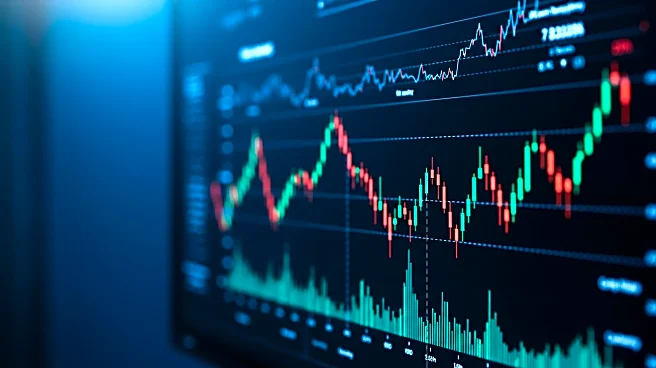What is the story about?
What's Happening?
The London Metal Exchange (LME), the world's oldest and largest market for industrial metals, has announced the implementation of reforms aimed at increasing trading liquidity on its electronic system. These changes, set to be enacted in February and March of the following year, are designed to consolidate trading volumes by moving small block trades—privately negotiated deals with brokers over the phone—onto the LME's electronic platform. This move is part of a broader strategy to focus liquidity on a single date per month, aligning with the practices of most futures exchanges that have a single expiry date for monthly contracts. The LME, owned by Hong Kong Exchanges and Clearing Ltd., believes that the current system, which allows daily trading, dilutes liquidity across multiple dates. Despite the exchange's intentions, some participants remain skeptical about the effectiveness of these reforms in boosting liquidity.
Why It's Important?
The LME's decision to shift more trading to its electronic system could have significant implications for the metals market, potentially affecting how trades are conducted and priced. By concentrating liquidity, the LME aims to enhance market efficiency and transparency, which could benefit traders and investors by providing clearer pricing signals. However, the skepticism among some market participants suggests potential resistance to these changes, particularly from those who rely on the flexibility of the current system. The reforms could also impact the business models of brokers and banks involved in LME trading, as they may need to adapt to the new electronic-focused environment. The increase in fees for over-the-counter trades using LME prices further underscores the exchange's push towards electronic trading, which could lead to shifts in trading strategies and cost structures for market participants.
What's Next?
As the LME prepares to implement these reforms, market participants will likely monitor the impact on trading volumes and liquidity closely. The exchange's decision to maintain its open-outcry floor, a traditional venue for physical trades, suggests a continued commitment to accommodating diverse trading preferences. However, the success of the electronic trading reforms will depend on the willingness of traders and brokers to adapt to the new system. The LME's approach to balancing electronic and traditional trading methods will be crucial in determining the long-term effects on the metals market. Stakeholders may also engage in further discussions and consultations to address concerns and optimize the implementation of these changes.

















